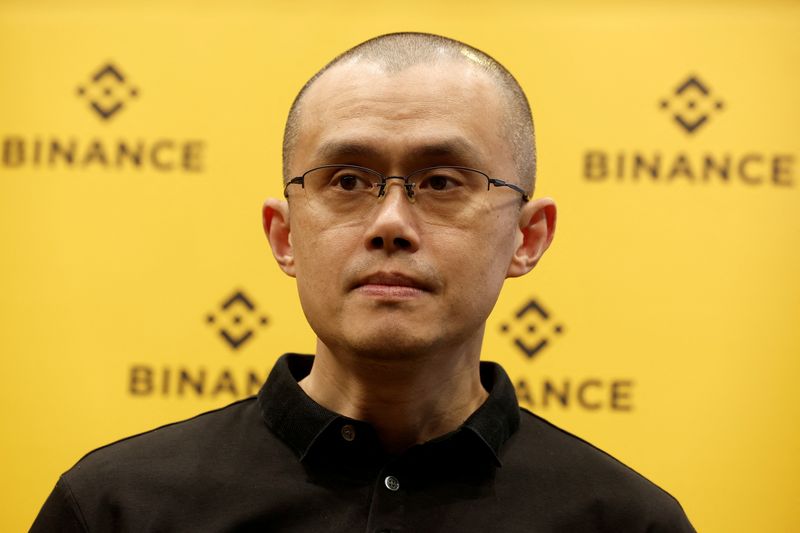By Nate Raymond
(Reuters) - Lawyers for former Binance CEO Changpeng Zhao are urging a U.S. judge to reject the Justice Department's request to bar him from returning to his home in the United Arab Emirates until he is sentenced for violating anti-money laundering requirements.
Zhao's lawyers in a Thursday filing asked U.S. District Judge Richard Jones in Seattle not to reverse bail conditions set by a magistrate judge on Tuesday that would allow him to leave the U.S. while awaiting sentencing.
Zhao, a citizen of the UAE and Canada, stepped down as CEO of Binance on Tuesday after pleading guilty to willfully causing the global cryptocurrency exchange to fail to maintain an effective anti-money laundering program.
U.S. authorities said Binance broke U.S. anti-money laundering and sanctions laws and failed to report more than 100,000 suspicious transactions with organizations the U.S. described as terrorist groups including Hamas, al Qaeda and the Islamic State of Iraq and Syria.
The company as part of a plea deal agreed to pay more than $4.3 billion. Zhao has agreed to pay a $150 million penalty to the U.S. Commodity Futures Trading Commission, and prosecutors in a Wednesday filing said he faces up to 18 months in prison.
The Justice Department has asked Jones by Monday to reverse a decision by U.S. Magistrate Judge Brian Tsuchida to allow Zhao to return home to the UAE ahead of his Feb. 23 sentencing after he agreed to release him on a $175 million bail bond.
The government said it may be unable to secure his return if he chooses not to come back to the U.S. for sentencing, given that it has no extradition treaty with the UAE and Zhao is a multi-billionaire with significant assets.
But Zhao's lawyers argued that the former CEO had demonstrated he was not a flight risk by agreeing to a "substantial" bail package and by voluntarily coming to the U.S. to accept responsibility for his actions.
Allowing Zhao to return to the UAE would allow him to take care of his partner and three children and prepare them for his sentencing, defense lawyers argued.

The Justice Department responded in a brief on Friday that its decision at Tuesday's hearing to recommend Zhao remain free before sentencing was "exceptional" and was only because it believed the risk of flight he posed could be "managed" by restricting his travel.
"In the vast majority of cases, a multi-billionaire defendant who has pleaded guilty, faces possible prison time, and lives in a country that does not extradite its citizens to the United States would be detained," Justice Department lawyers said.